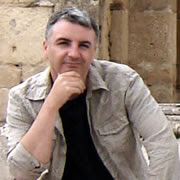I've been discussing one of the lesser-covered aspects of podcasting: delivering effective voice-over narration. So far, we have covered three of the four 'P's' of engaging your audience:
Today, I will talk about the Art of the Pause.
In my view, narrators are afraid to take advantage of a dramatic pause. Anyone who has worked in media (particularly radio) will tell you that they constantly worry about 'dead air' - silence. Perhaps counter-intuitively, a stop or pause in a narrative actually motivates your listeners to (unconsciously) anticipate the next word - after all it must be important if you've paused - rather than causing the listener to 'switch off.' Used correctly and in concert with the other 'P's,' pauses or caesuras will direct listeners' attention as you choose, creating the appropriate amount of expectation or to emphasize the key points and messages that you want to convey.
However, if your speech is too staccato - stopping and starting, leading your audience to multiple points of anticipation, without any special meaning or pay-off, any pauses will serve only to irritate and frustrate your listeners.
This speech pattern is most apparent when a podcast has not been designed, planned and scripted properly. I can best illustrate how to do it, and how not to do it by example.
Here are two excerpts from podcasts about aspects of the Roman Empire from iTunes U.
The bad news first: Sample 1 (MP3 | 1.3MB | 1 minute 26 seconds | click to play in your browser | right click to download) is from UC Berkley's History 4a course, The Mediterranean World (2009). In this excerpt, the speaker introduces the course, before going off-topic
As usual one page of my lecture is sitting in my office…
Sooner after, the speaker digresses again:
So that [pause] actually, ehh, [pause] I've got a couple of good quotes for you and I wanted to discuss that with you. So ehm, we're going to be [pause] [sigh] finishing up here, right?
The lecturer then digresses yet again by discussing a final exam, but has "no idea where it is" (the location is "apparently...online"). I have edited this piece down a little but in the unedited version of this podcast, the lecture proper does not begin until nearly two minutes into the podcast.
Contrast this with Sample 2 (MP3 | 1.0MB | 1 minute 05 seconds | click to play in your browser | right click to download) from Archaeology: Pompeii and the Roman World (Open University, 2009). Here, the speaker Phil Perkins defines an empire, before expanding on the theme of statehood and polities. He then discusses interaction, rivalry, competition, power, and war, before getting to the learning objective of his podcast:
Is dominance enough to create an empire?
...all in just over a minute, and in less than 150 words.
Which podcast did you find more engaging and informative? Which kind of podcast would you prefer to deliver? Which type of podcast has more value for your audience?
___________
References:
Pafford, I. (2009). Twilight in the West. History 4a: The Mediterranean World. UC Berkley [Internet] Available from: http://deimos3.apple.com/WebObjects/Core.woa/Browse/berkeley.edu.1625336377.01625336380.1623195422?i=1284407406 Accessed 3 August 2009
Perkins, P. (2009) Archaeology: Pompeii and the Roman World. World archaeology. Open University. [Internet] Available from: http://deimos3.apple.com/WebObjects/Core.woa/Browse/itunes.open.ac.uk.1544964539.01556024330.1827251501?i=1680120285 Accessed 3 August 2009
--





No comments:
Post a Comment